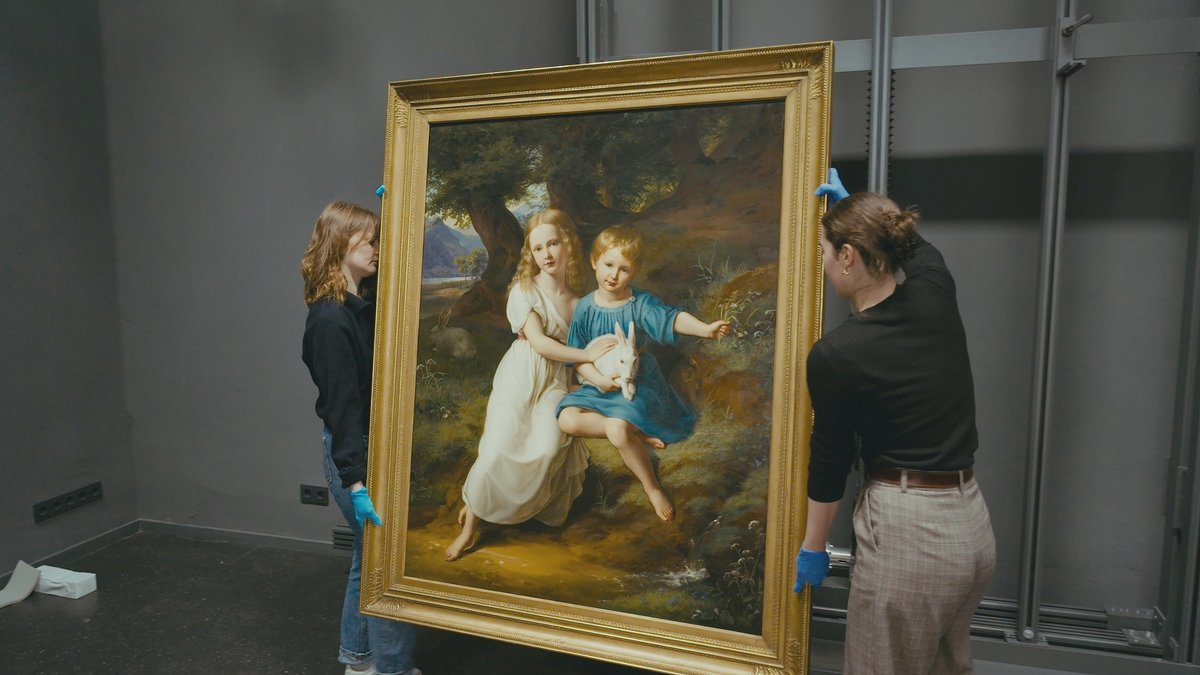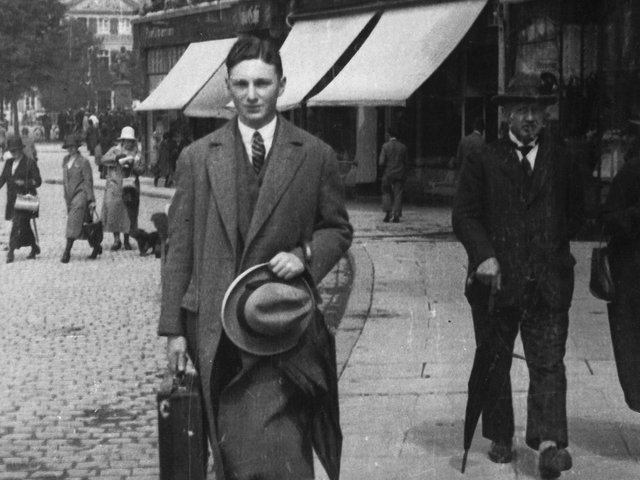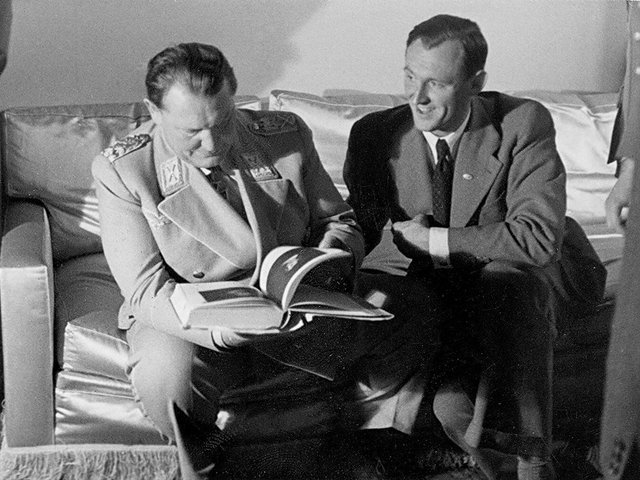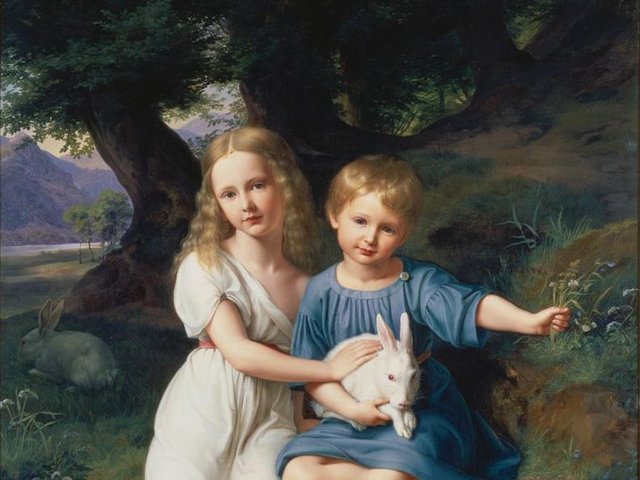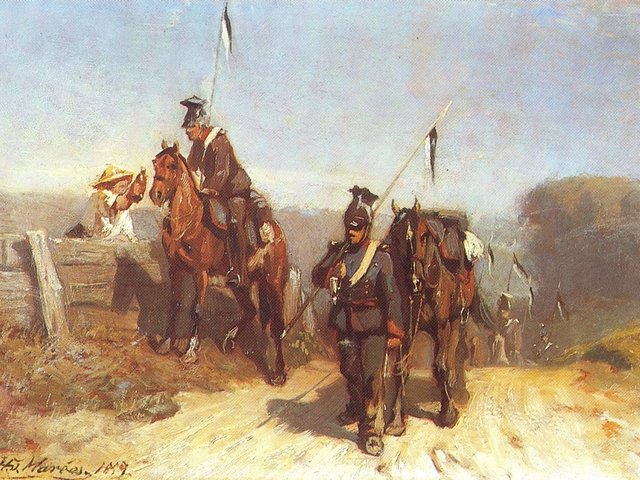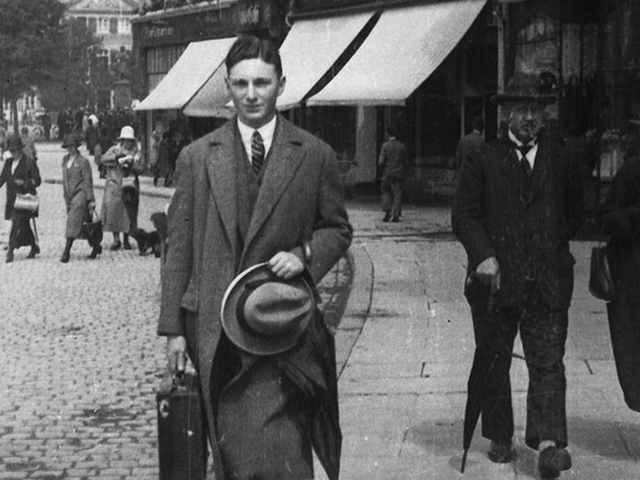The new documentary The Spoils (2024) tells the story of two exhibitions in Düsseldorf—one which never happened and one which probably never should have happened.
As the film by Toronto-based director Jamie Kastner opens it is 2021, and the director of Düsseldorf’s municipal museum, the Stadtmuseum, Susanne Anna, leads a camera crew through her institution, describing what is in the galleries. But the focus of The Spoils is what Anna does not mention, a hastily assembled exhibition that offered the museum’s sanitised version of what happened to art owned by Max Stern (1904-87), the Jewish dealer who lost his gallery in Düsseldorf and fled Germany after selling all his paintings in 1937. In a clip from years before, the same museum director sounds like an ardent proponent of restitution. Does her silence in 2021 reflect fear of punishment?
From that 2021 show, you would not have learned that Stern received a pittance after that 1937 sale at Lempertz auction house in Cologne. Stern later reached England, but only after paying extortionate taxes and forfeiting his property. The dealer eventually settled in Montreal and established a successful gallery. While he was alive, he was only able to recover a small number of works.
In Düsseldorf, an earlier Stern exhibition at the Stadtmuseum, organised by the Canadian scholars working with the Max Stern Art Restitution Project was cancelled in 2017 by the city's mayor, on the grounds that the show lacked “balance”. The 2021 show devoted to Stern that the mayor did approve had a German curator selected by city officials. It opened without the cooperation or expertise of the Stern team in Canada. The Jewish community of Düsseldorf refused to endorse the exhibition.
In Düsseldorf and beyond, the Stern legacy is a delicate subject. The Spoils, which examines why, is probing and surprisingly entertaining.
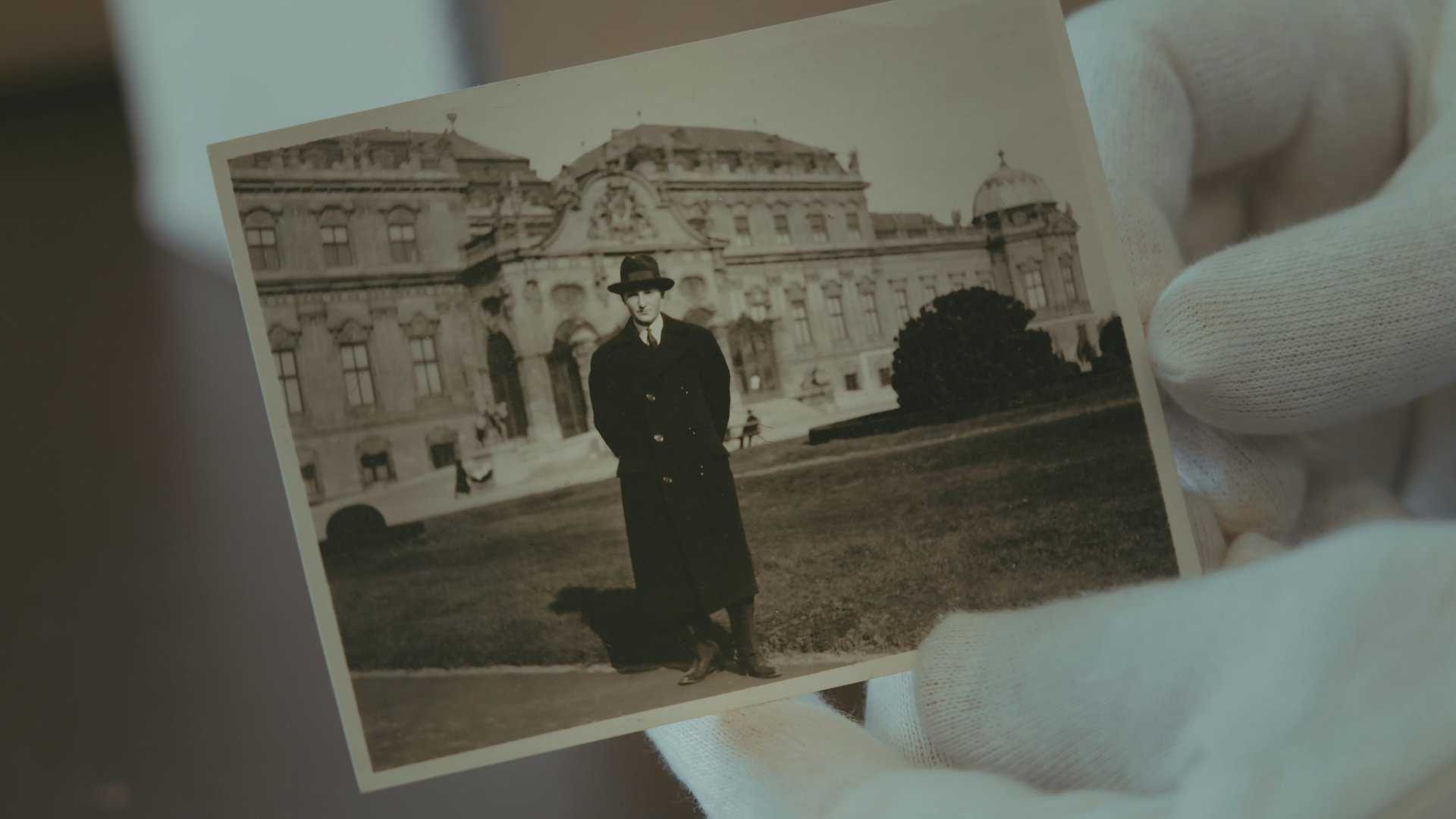
Archival photograph of Max Stern held by Philip Dombowsky in The Spoils Courtesy Cave 7 Productions
The story is one of persecution after 1933, as Stern inherits his father's gallery and tries to conduct business as a Jew in Germany. He was banned from professional associations after 1933. He was later the subject of a Berufsverbot, which banned him from operating his gallery. He sold the paintings that he owned in 1937, in an auction ordered by the Nazi government.
We know much about Stern's life and struggles thanks to the Max Stern Art Restitution Project, formed with funds from the dealer’s estate, which he left to Concordia and McGill universities in Montreal, and to the Hebrew University in Jerusalem. Some documents from his business survive, but many records that Stern saved from the Nazis were destroyed during the German bombing of London and Allied bombing destroyed records at Lempertz.
The film concentrates on two paintings by the artist Wilhelm von Schadow (1789-1862) that were once owned by Stern: a self-portrait restituted to the Stern estate in 2014 and now on loan to Düsseldorf, and The Artist's Children (1830), restituted to the Stern Estate and sold to Düsseldorf. Initially opposing the return of The Artist's Children, the museum hired the lawyer Ludwig von Pufendorf, a veteran of legal fights in Germany against restitution claims. In the film, Von Pufendorf's blithe dismissal of facts offered by the Stern project evokes German attitudes from decades before. When he is not laughing at his own witticisms, Von Pufendorf is defending collections built on Jewish losses.
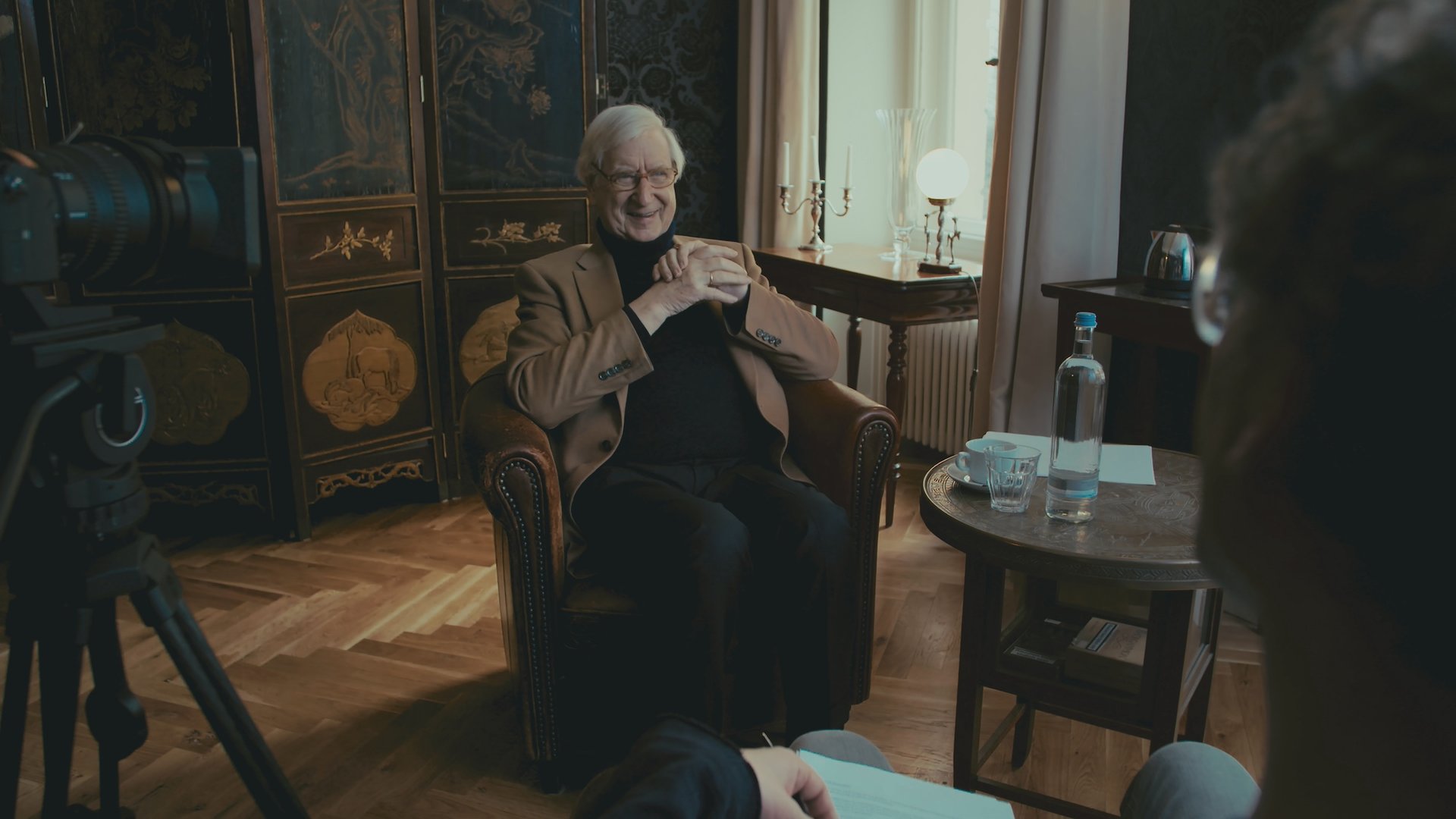
Ludwig von Pufendorf in a scene from The Spoils Courtesy Cave 7 Productions
Citing a term for looted art invoked by the advocates for restitution, Von Pufendorf says: “‘The last prisoners of war’, a vile phrase, loathsome.” He adds, breaking into a smile: “But that’s unchristian of me. I take it back.”
Another memorable character is Thomas Geisel, then the mayor of Düsseldorf, who cancelled the Stern exhibition organised by the Canadian team. Geisel grins as he speaks fluent English and rhapsodises about the story of Düsseldorf when asked to discuss Nazi art crimes.
In Cologne, Henrik Hanstein of Lempertz auction house, a favoured venue for the Nazis to sell art looted from Jews, evokes the memory of what he calls his grandfather's friendly relationship with Max Stern, as if Stern were a cherished client.
Back in Düsseldorf in 2023, the city council votes to restitute Von Schadow’s The Artist's Children to Stern’s estate, which the city of Düsseldorf then buys back for an undisclosed sum. Questioned by Kastner, an official's silence hints that that the city is responding to political pressure, but not accepting the claim's legitimacy. The vote to restitute the work is nearly unanimous, with the exception of delegates from the far-right Alternativ für Deutschland (AfD) party, who abstain.
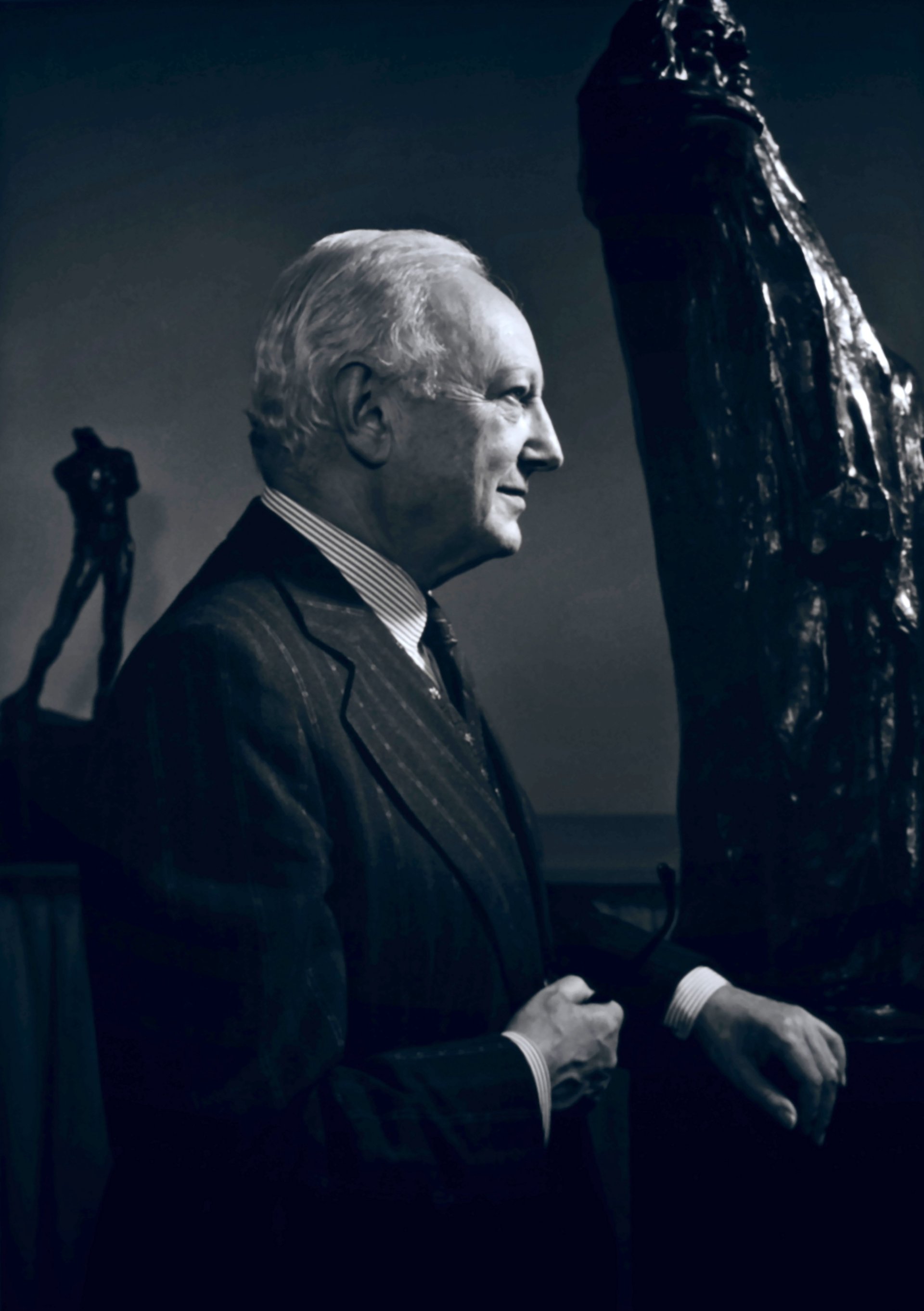
Undated portrait of Max Stern Courtesy Cave 7 Productions
Throughout The Spoils, frank talk about retaining property sold under duress gives a dark, comical feel to what is said. When the time comes for signing an agreement between representatives of the city and the Stern estate for the painting to be re-acquired so it can remain in Düsseldorf, an official notes that the date is 20 April, Hitler's birthday, and offers to postpone the signing. (There are more absurd incidents for future audiences to discover.)
These moments of candour can be surprising, even refreshing, since films about Holocaust art crimes tend to rely on experts who pile on facts but sound alike. Instead, Kastner's German interlocutors often find idiosyncratic ways to say “I know nothing”, a skill familiar to Americans who watched the television series Hogan’s Heroes.
Some will inevitably fault The Spoils as unbalanced for taking Stern’s side and for making Germans opposing restitution seem less than serious. But the film compellingly explores the degree to which a German institution (or city) will defend what it sees as its interests, and the moments at which it will compromise. The Stern estate is still looking for hundreds of paintings. There will be sequels to The Spoils, in Germany or elsewhere.
- The Spoils screens on 21 January (with a post-screening discussion with director Jamie Kastner and Clarence Epstein and Willi Korte of Max Stern Art Restitution Project) and on 29 January at the New York Jewish Film Festival. Other upcoming screenings include film festivals in Atlanta, Chicago, New Jersey, and Tel Aviv. It will be also released in Canadian cinemas and air on CBC in Canada in May
Watch the trailer for The Spoils:


